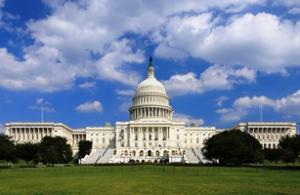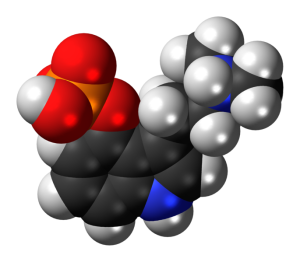Oregon residents will have a chance in November to approve the most far-reaching drug reform measure ever to make the ballot in this country when they vote on Measure 110, the Drug Addiction Treatment and Recovery Act. While the initiative indeed expands drug treatment, what makes it really revolutionary is that it would also decriminalize the possession of personal use amounts of all drugs, from psychedelics to cocaine and methamphetamine, as well as heroin and other illicit opioids.

Possession of illicit drugs will no longer be a criminal offense under Oregon law if this measure passes. (DEA)
"Our current drug laws can ruin lives based on a single mistake, sticking you with a lifelong criminal record that prevents you from getting jobs, housing and more," Bobby Byrd, an organizer with the More Treatment, A Better Oregon campaign," said in a
press release.
If Oregon voters approve the measure, the state will be in select company. At least 19 countries, mostly in Europe and Latin America, have drug decriminalization laws on the books, with the most well-known being Portugal, which pioneered the way, decriminalizing drug possession in 2001. Instead of being arrested and jailed, people caught with illicit drugs there are given a warning and a small fine or asked to voluntarily appear before a local commission whose aim is to determine whether the person needs drug treatment and if so, to offer it to them at no expense. (It helps that Portugal has universal health care.)
Decriminalization has worked for Portugal. According to a Drug Policy Alliance report after a delegation visited Lisbon in 2018, before drug decriminalization, the country suffered rapidly increasing drug overdose deaths, a high number of people who caught HIV through needle-sharing, and led the European Union in drug-related AIDS. Since decriminalization, though, "the number of people voluntarily entering treatment has increased significantly, while overdose deaths, HIV infections, problematic drug use, and incarceration for drug related offenses has plummeted." Not bad at all.
It was just three years ago that the Oregon legislature approved drug defelonization -- making possession a misdemeanor instead of a felony -- but now advocates are already prepared to push further down the Portuguese path. That's because while, according to the state Criminal Justice Commission (CJC), drug defelonization indeed resulted in felony drug convictions dropping by nearly two-thirds, it also included a near 10-fold increase in misdemeanor drug possession convictions. That translates into only a slight decline in overall drug arrests, from just over 10,000 in Fiscal Year 2016 to 8,903 in Fiscal Year 2018.
Under Measure 110, those misdemeanor drug arrests would vanish as drug possession gets reclassified as a mere violation punishable only by a $100 fine or by completing a health assessment with an addiction treatment professional. Those who are deemed to benefit from drug treatment could go to an addiction recovery center, one of which will be located in every organization service area in the state. Those centers, as well as additional funding for treatment, would be paid for with revenues from marijuana sales taxes.
The measure is backed by Drug Policy Action, the political and lobbying arm of the Drug Policy Alliance (DPA), which has put $2.5 million into the campaign already, DPA director of media relations Matt Sutton said in an email exchange. And that's just the beginning, he added.
"We'll continue to invest in terms of what it takes to win it," he said. "The campaign is starting a variety of different ads and raising awareness in the final push. We've invested a lot already and we're very committed to it financially. We think this is winnable."
So, why Oregon and why now?
"We have to start somewhere," said Sutton. "Oregon is a very progressive state and has really been the leader on a lot of drug policy reforms. It was one of the first to decriminalize marijuana, one of the first to legalize medical marijuana, one of the first to legalize marijuana, one of the first to defelonize drug possession. It's no surprise that Oregon would be an attractive state to do this in."
The special nature of this year, with its double whammy of enduring pandemic and its long, hot summer of street protests, makes drug decriminalization all the more relevant, Sutton said.
"Having a state like Oregon that has been a progressive leader take this on will signal to the rest of the country that this can be done and that it's not actually that radical of a proposition," said Sutton. "And just in terms of everything that's happened this year -- COVID and the awakening to racial injustice -- it just doesn't seem as such a radical proposition. With COVID we've seen the discrepancies in the health care system.
"It's the same communities that are being overpoliced and have been hit hardest by the war on drugs," he continued. "And people are realizing that the war on drugs is racist. The real reason behind the war on drugs was to criminalize and marginalize communities of color, and we've demonized drugs and the people who use them. The drug war hasn't made drugs less accessible to youth, but instead we get a lot more people incarcerated and dying of drug use. The more we criminalize it, the more dangerous it becomes."
In an August report, the state CJC made clear just what sort of impact drug decriminalization would have on racial inequities, and the results are impressive: Racial disparities in drug arrests, using an academically accepted comparison measure, would drop by an astounding 95%.
The report also found that decriminalization would radically reduce overall drug convictions, with projected convictions of Black and Indigenous people declining by an equally astounding 94%.
"This drop in convictions will result in fewer collateral consequences stemming from criminal justice system involvement, which include difficulties in finding employment, loss of access to student loans for education, difficulties in obtaining housing, restrictions on professional licensing, and others," the report found.
"This report only scratches the surface," Kayse Jama, executive director of Unite Oregon said in a press release. "Drugs are too often used as an excuse to disproportionately target Black and Brown Oregonians and economically disadvantaged communities."
"This initiative addresses those racial disparities more than anything," said DPA's Sutton. "It will help those communities that have been down for far too long. A lot of the economic problems we see there are a result of decades of drug war, taking generations of people out of their homes and saddling them with felony convictions. This would be a huge win in taking drug reform to the next level. It doesn't solve all the problems of drug prohibition -- people would still be charged with distribution and drug induced homicide -- but it would still be a huge step forward."
And now, a broad coalition of change agents are uniting to push the initiative to victory in November. Endorsements range from national and international groups such as the American Civil Liberties Union, AFSCME, the National Association of Social Workers, and Human Rights Watch, as well as dozens and dozens of state and local racial justice, human rights, and religious groups and groups representing health and social welfare professionals.
"We've received an incredible amount of support, and it's really broad," said Sutton. "And there is no organized opposition."
If things go well in November, DPA and its lobbying and campaign arm, Drug Policy Action, are already planning next moves.
"We just a few weeks ago released a national framework for drug decriminalization, the Drug Policy Reform Act," Sutton said. "This has been a goal of DPA all along and where our work is focused today, all drug decriminalization. We think that people are ready for that. We decided to release the framework right now just because of everything happening in the country especially around racial justice issues. People are seeing the direct impact of the war on drugs and the racial disparities."
"We're already looking ahead at other states where we could replicate this," Sutton revealed. "Some of the first states to legalize marijuana would likely be the first to consider drug decriminalization."
Once again, Oregon voters have a chance to burnish their drug reform credentials, only this time with the most dramatic attack yet on drug prohibition. If they approve Measure 110, they will truly be the drug reform vanguard -- and blaze a path others can follow.
The Drug Policy Alliance is a funder of StoptheDrugWar.org, and we participated in the Lisbon delegation.
back to top
A British prescription heroin pilot program gets extended after promising first year results, police in Oakland raid a club that was selling magic mushrooms, and more.

Magic Mushrooms. In Oakland, apparently you can have them, but you can't sell them. (Creative Commons)
Arizona Supreme Court Rules Legalization Marijuana Legalization Initiative Stays on the Ballot. The state Supreme Court on Thursday upheld a lower court decision that the description on the Smart and Safe Arizona Act marijuana legalization initiative "accurately described the proposition," ending a legal challenge to it and clearing the final hurdle before it can go to voters in November.
Psychedelics
Oakland Police Raid, Close Nation's Only Magic Mushroom Church. Police in Oakland raided the Zide Door Church of Entheogenic Plants last week, seizing marijuana, hallucinogenic mushrooms, and cash after calling firefighters to break open the church's safe. Zide Door was the most prominent "magic mushroom" club in the country and likely the only brick and mortar place where one could purchase the mushrooms. Zide Door was originally a "cannabis church," but added mushrooms to its offerings after the city council approved a resolution making enforcement of laws around certain psychedelic plants law enforcement's "lowest priority." Police say the church went beyond the law by selling marijuana without a license and by selling magic mushrooms. "The council said mushrooms should not be our priority, and they're not," said Oakland Police Captain Randell Wingate, who supervises the unit that conducted the raid. "You can use mushrooms, you can grow your own mushrooms -- but selling mushrooms is still not legal."
International
British Heroin Maintenance Pilot Project Extended for Another Year. The United Kingdom's first heroin prescribing pilot project has been extended for another year after an evaluation found it created reductions in crime and homelessness. The first year's results were "very promising," the evaluation found. The project in Middlesborough led to a a large reduction in reoffending rates and street drug use, and significant improvement in participants' health and quality of life, including seeing initially homeless participants placed in stable housing.
back to top
At least one Mexican drug cartel has resorted to using drones armed with explosives, the Canadian federal government must respond to a petition calling for psychedelic decriminalization after signatures hit a trigger mark, and more.

The black market in cocaine is driving violence and conflict in Colombia and Mexico. (CBP)
Canadian Government Will Respond to Petition to Decriminalize Psychedelics. A petition calling for the decriminalization of psychedelic drugs has garnered nearly 15,000 signatures -- enough that the Canadians government will have to officially respond to it. The petition calls for the government to "immediately discontinue enforcement of statutes or regulations that prohibit or impose onerous restrictions on informed adult use, growing, or sharing of any plant or fungi, where an established record of traditional use exists. It also calls on lawmakers to amend federal drug laws to "distinguish and exempt these organisms when used for therapeutic practices, as adjuncts to medical care, for healing ceremonies or solitary spiritual growth and self-development."
Colombian Court Orders Army to Halt Coca Eradication, Implement Peace Deal. In a blow to the government of President Ivan Duque, an administrative tribunal in the southwest department of Cauca has ordered the National Army to halt the forced eradication of coca crops and emphasize crop substitution instead. The ruling came after farmers from three towns sued the army for eradicating their drug crops after they had expressed interest in joining a crop substitution program that is part of the 2016 peace deal with the leftist rebels of the FARC. The court ruled that the army cannot carry out eradication until and unless crop substitution has failed. The ruling only applies to those three municipalities in Cauca, but could set a legal precedent which other communities across the country could use to see eradication bans enacted there, too.
Mexican Drug Cartel Using Armed Drones Against Rivals. The Jalisco New Generation Cartel (JNGC) has started using drones packed with the military explosive C4 and metal pellets to attack rival cartels in the southwestern state of Michoacan. Self-defense groups in the town of Tepalcatepec recovered two of the drones and four packages of explosives. The cartel has targeted the self-defense forces there in a bid to take over lucrative lime and avocado exports, in addition to running drugs. The only other known use of armed drones by cartels was last year in the southeastern state of Puebla.
back to top
A bill to ban police searches based soley on the odor of marijuana is moving in Virginia, Pennsylvania's governor wants to legalize marijuana to help coronavirus-ravaged state economy, and more.

There will be a historic vote in the House this month. (Creative Commons)
House Will Vote on Marijuana Legalization Bill This Month. The House will vote this month on the Marijuana Opportunity Reinvestment and Expungement (MORE) Act, HR 3884, this month, according to an email from Majority Whip James Clyburn (D-SC). The measure would remove marijuana from the Controlled Substances Act and expunge records of some marijuana-related offenses.
Pennsylvania Governor Wants Marijuana Legalization as Effort to Fix State Economy Ravaged by Coronavirus. Gov. Tom Wolf (D) is calling on the Pennsylvania legislature to legalize recreational marijuana and use the tax revenue to help small businesses that have been impacted by the coronavirus pandemic. "Repairing the damage of this pandemic is not going to be easy," Wolf said at a news conference last Tuesday. "The legislature can act right now to get us back on track as quickly as we possibly can."
Virginia Senate Approves Bill to Ban Police Searches Based Solely on the Smell of Marijuana. The state Senate approved a bill last Friday that would bar searches and seizures based solely on the odor of marijuana. The measure, SB5029, now needs approval in the House. The House version, HB5058, passed the House Courts of Justice Committee last Wednesday. Marijuana possession has been decriminalized in the state since June.
Medical Marijuana
Nebraska Medical Marijuana Initiative Survives Legal Challenge. The secretary of state last Thursday rejected a legal challenge against a medical marijuana initiative headed for the November ballot. The move came just one day after the initiative had officially qualified for the ballot. The legal challenge claimed the initiative violated the state's single-subject rule and that it "creates doubt about what will be authorized after the election."
back to top
There are good polling results for medical marijuana in Mississippi and a natural psychedelic initiative in DC, Pennsylvania's top elected officials call for marijuana legalization, and more.

A psilocybin molecule. The plant-based drug would be effectively decriminalized if a DC initiative passes. (Creative Commons)
Pennsylvania Governor, Lt. Governor Call on Legislature to Legalize Marijuana. Governor Tom Wolf (D) and Lt. Governor John Fetterman (D) called Thursday for the General Assembly to go beyond medical marijuana and legalize marijuana outright, not just medical, in Pennsylvania. According to the governor's office, legalization will provide a revenue stream that will help the state's economic recovery from the coronavirus pandemic.
Medical Marijuana
Mississippi Poll Has Very High Support for Medical Marijuana Initiative. Polling firm FM3 Research recently conducted a survey of state voters and found a whopping 81% supported legalizing the use of medical marijuana. Voters will have the chance to vote on two competing initiatives, one championed by Mississippians for Compassionate Care, and another watered-down created by state legislators. The survey found voters preferred the original initiative, Initiative 65, over the watered-down one, Alternative 65A.
Harm Reduction
California Safe Injection Site Bill Killed. Legislative leaders in Sacramento last week killed Assembly Bill 362, which would have allowed the cities of Oakland and San Francisco to establish safe injection sites in a bid to reduce drug overdoses. The bill had already passed the Assembly but was shelved in the Senate.
Psychedelics
DC Poll Has Solid Support for Psychedelic Decriminalization Initiative. A new poll of DC residents has support for Initiative 81 at 60%, up nine points since the poll was last conducted in April. The measure would make natural psychedelics the lowest law enforcement priority in the nation's capital.
International
Australian Officials Ponder Allowing MDMA, Magic Mushrooms for Mental Health Treatment. The country's medicines regulator, the Therapeutic Goods Administration, is seeking feedback on a proposal to legalize MDMA and psilocybin -- the active ingredient in magic mushrooms -- for mental health treatment purposes. Mind Medicine Australia, a non-profit that advocates for new treatments for depression and PTSD has asked the regulator to allow psychiatrists to use MDMA and the hallucinogenic psilocybin in therapy sessions.
back to top



